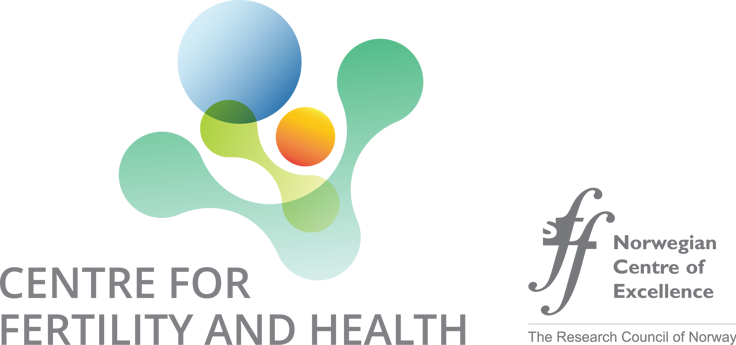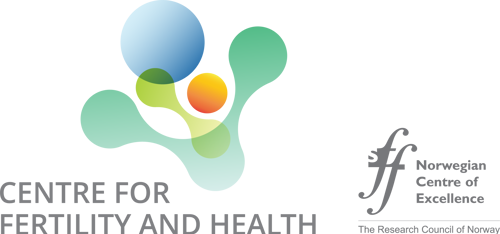Reproduction, partner disruption and health
Project
|Updated
The main aim of the project is to understand the health consequences of changes in fertility patterns and partner disruption.
Summary
The purpose of this project is to answer four research questions:
- Effects of reproductive factors on offspring health: How is a child's health affected by the parents' age at birth, number of siblings and age interval between siblings?
- Effects of reproductive factors on adults’/parents’ health: How is the health of adults affected by the number of children (including childlessness), age at first birth and interval between births?
- Effects of parental disruption on children’s health: How is a child's health affected by the parents' break-up, and by formation of new relationships?
- Effects of disruption on adults’ health: How is the health of adults affected by marital breakdown, and by new relationships?
These overarching research questions are investigated through several sub-projects.
Project duration
The project ends on 31.12.2028, and analyses will then be finished. For documentation reasons, the information shall be retained until 31.12.2033. After this, all data is deleted.
Data sources
In this project, we use information from various registers and health surveys. We want to shed light on the health consequences in Norway at the population level. The entire population in Norway is our study population, i.e. everyone who has lived in Norway since 1964 and who has a Norwegian national identity number.
Analyses
We compare health risks in different groups of the population, and study for example how the risk of different diseases relates to forms of cohabitation and the number of children. The groups must be large enough for us to calculate risk with sufficient statistical power, even for rare diseases or conditions.
What information do we obtain from the registers?
The registers provide information on all persons registered in the various registers.
- Statistics Norway (Socio-economic information, including population data, living conditions, education, income, wealth, taxes, working conditions, welfare)
- Norwegian Cause of Death Registry (time and causes of death)
- Cancer Registry of Norway (time and cancer diagnoses)
- Medical Birth Registry of Norway (information on all pregnancies and births in Norway)
- Norwegian Armed Forces Health Registry (health indicators and results from capability tests at the session)
- Norwegian Patient Registry (diagnoses in the specialist health service)
- The database for Control and Payment of Health Refunds (KUHR) (diagnoses in the primary health service)
- Norwegian Labour and Welfare Administration - NAV (diagnostic information on social security)
- Historical Population Register(not completed, under development): includes persons who were already dead when the Register of Persons was established; their date of birth, date of death and date of possible immigration / emigration and marriage; serial number for parents / spouse of persons in older birth cohorts than those for whom such information is available in the Register of Persons; housing and socio-economic characteristics from censuses before 1960.
What information do we get from health surveys?
Norway has several large population surveys where participants have been followed for many years. The information gathered in these large surveys is very valuable because they provide data to understand how various factors affects health and we can discover new causes of diseases. The health surveys are consent based and include only those who participate in the various surveys. These provide information from questionnaires and surveys, on diseases and risk factors for disease, including lifestyle, cognitive and practical skills.
We include data from:
- The Norwegian Mother, Father and Child Cohort Study (MoBa)
- Cohort of Norway (CONOR)
- The Norwegian Twin Registry
- The Trøndelag Health Study (HUNT)
Data from MoBa are used in the following sub-projects:
- Residential arrangements when parents live separately - characteristics of families and consequences for children's well-being and mental health (Responsible lead researcher: Øystein Kravdal)
-
Pubertal timing and inequalities in education (Responsible lead researcher: Martin Flatø)
- How does being conceived through Assistant Reproductive Technology (ART) affect the child’s and the parents’ health in the short and longer term? (Responsible lead researcher: Øystein Kravdal)
-
Sociodemographic and psychobiomedical determinants of second and third birth (Responsible lead researcher: Øystein Kravdal)
Privacy and data security
Privacy is about balancing the rights of individuals and the interests of society. The Norwegian Institute of Public Health is concerned with safeguarding privacy in all parts of its activities. You can find our privacy statement, and information about the right to access and correct and delete health information, on the theme page on privacy and health data. Further information on how privacy is secured can be obtained from the institute’s Data Protection Officer ( Personvernombud@fhi.no ).
- All directly identifiable personal data, such as names and social security number, has been removed from the research files. Researchers who work with the data material do not have access to names and social security numbers. Each person is assigned a serial number that is specific to our project, which is used to link the correct information to the same person. Statistics Norway manages key files with serial numbers.
- Health information is sensitive personal information, and there is a strict duty of confidentiality for anyone who processes health information. Only researchers approved by the Regional Ethics Committee have access to the research data.
- The research data in the project is stored at the Services for Sensitive Data (TSD) at the University of Oslo. The TSD meets the law's strict requirements for the processing and storage of sensitive research data.
- Researchers at the Centre for Fertility and Health analyse the data material in collaboration with researchers at our Norwegian and foreign collaborating institutions. Cooperation with foreign institutions is regulated through written contracts with the institute, and meets the requirements for the EU's standard contract .
- The participants in the health surveys from which the project obtains the research data have given prior consent to the use of data for research purposes in line with the objectives of this project.
- No participants will be contacted by the project and it will never be possible to identify individuals in the results presented from the project.
Right of access
It is important that there is transparency about the research projects run under the auspices of the Norwegian Institute of Public Health. Part of the openness lies in the individual participant's right to know what is done with their own health data. Therefore, you have the right to access information that is registered in national health registers, such as the Cancer Registry and the Medical Birth Registry. The information shall be provided in an understandable form and is free of charge. The Norwegian Institute of Public Health's population services at helsenorge.no provide electronic access to several health registers. If you are a participant in health surveys with consent, such as the Norwegian Mother, Father and Child Cohort Study, you also have the right to access your information. This is how your personal information is processed in MoBa. If access has not been arranged via helsenorge.no, you can download a form for access requirements. You are then entitled to a response within 30 days of the form being received at the Norwegian Institute of Public Health.
Right to be deleted from the project
Norwegian legislation gives the individual the right to demand deletion from research projects. You can opt out from this project by following the link below (In Norwegian, BankID required).
I do not want to participate in this research project
According to the Personal Data Act, Section 17 (Lov 15. juni 2018 om behandling av personopplysninger), everyone has the right to delete and correct information.
Dissemination of results from the project and more information
The results of the research will be published in scientific journals and disseminated on our websites and in various scientific and popular science lectures and presentations. It will never be possible to identify individuals in publications or presentations from the project. The project is also mentioned
- in Cristin - the national database for research information
- in the overview of MoBa projects on our website. Here you will find information about how your personal data is processed in MoBa. Information is also provided that participation in MoBa is voluntary for both adults, young people and children and that it is possible to skip questionnaires, unsubscribe or delete yourself completely from the survey.
We will also make sure to inform about the project through our institute’s social media and other media (newspapers, research websites and the like).
For more information about the project, you can contact project manager Per Magnus (email PerMinor.Magnus@fhi.no).
Legal basis and approval of the project
The processing of personal data has its legal basis in the General Data Protection Regulation (GDPR) Article 6 e), and Article 9 j), with supplementary legal basis in the Personal Data Act §§ 8 and 9 and decisions on exemption from confidentiality. The project has been approved by the Regional Committees for Medical and Health Research Ethics (REK SørØst) - reference numbers 2018/434 and 9220, which have given permission for the use of information collected in the health service without consent, cf. the Health Research Act § 35.
The project has also carried out a Data Protection Impact Assessment (DPIA) which has been approved by the Norwegian Institute of Public Health.
Start
01.05.2018
End
31.12.2028
Status
Active
Financing
NFR
Approvals
Regional committees for medical and health research ethics
Project owner/ Project manager
Norwegian Institute of Public Health

